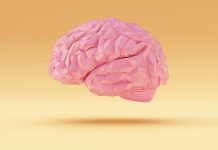
Depression and anxiety are increasingly important concerns among individuals facing a cancer diagnosis.
However, the prevalence of mood disorders in cancer patients can vary due to multiple factors, including the type and stage of cancer, treatment methods, age, race, and ethnicity.
A recent study conducted by researchers at Boston University Chobanian & Avedisian School of Medicine has shed light on the distinct experiences of Spanish-speaking breast cancer patients undergoing radiotherapy compared to their English-speaking counterparts.
The study revealed that Spanish-speaking patients exhibited higher levels of distress at the beginning of their treatment, and this distress continued to increase throughout the course of their treatment, in contrast to the decreasing distress levels observed in English-speaking patients.
Furthermore, individuals who identified their race as “other” and identified as Hispanic also reported an increase in distress during treatment.
Corina Beiner, a fourth-year medical student and the corresponding author of the study, emphasized the significance of this research, stating, “Breast cancer remains the most common type of cancer worldwide, and its impact on mental health is a subject of extensive research because it can affect treatment outcomes, recovery, and overall quality of life.
However, Black and Hispanic patients, who make up approximately 29% of the U.S. population, have historically been underrepresented in cancer research.”
To gain a deeper understanding of changes in depression and anxiety levels, the researchers surveyed both English and Spanish-speaking women aged 18 and older before and after they underwent radiation therapy for breast cancer.
The survey also collected sociodemographic information, including race, ethnicity, marital status, education level, location of longest residency, religion, housing situation, and food security.
The survey concluded with a standardized questionnaire designed to assess depression and anxiety, with the score serving as an indicator of psychological distress.
Before treatment, Spanish-speaking patients exhibited a higher baseline distress level compared to English speakers. Overall, all participants showed a decrease in distress levels after treatment. However, when analyzed by language, English speakers experienced a reduction in distress, while Spanish speakers reported an increase in distress.
Upon adjusting for sociodemographic factors, Spanish-speaking patients reported significantly higher levels of housing and food insecurity, potentially explaining their heightened distress levels. Corina Beiner suggested, “This underscores the importance of screening all Spanish-speaking patients for risk factors that could increase distress during their treatment.”
The researchers noted that it is crucial to explore the varying levels of depression and anxiety experienced by these patients, especially considering that mood disorders are associated with poorer survival outcomes.
Identifying groups at higher baseline distress levels can help guide initial interventions to mitigate these differences.
Senior author Ariel E. Hirsch, MD, a professor of radiation oncology, remarked, “Additionally, in the context of radiation therapy, recognizing that a portion of our patients are at an elevated risk of experiencing higher distress levels during their treatment course can lead to targeted interventions.”
While further investigation is needed to uncover additional reasons for the increase in distress during treatment, the researchers believe that these findings highlight a critical clinical need.
Dr. Hirsch concluded, “Patients at risk of heightened depression, anxiety, or increased distress during treatment may benefit from interventions both before and throughout radiation therapy, such as language-specific educational sessions or ongoing support calls during treatment.”
These findings have been published online in the International Journal of Radiation OncologyBiologyPhysics.
If you care about cancer, please read studies that a low-carb diet could increase overall cancer risk, and berry that can prevent cancer, diabetes, and obesity.
For more health information, please see recent studies about how drinking milk affects the risks of heart disease and cancer and results showing vitamin D supplements could strongly reduce cancer death.
The research findings can be found in the International Journal of Radiation Oncology Biology Physics.
Copyright © 2023 Knowridge Science Report. All rights reserved.



